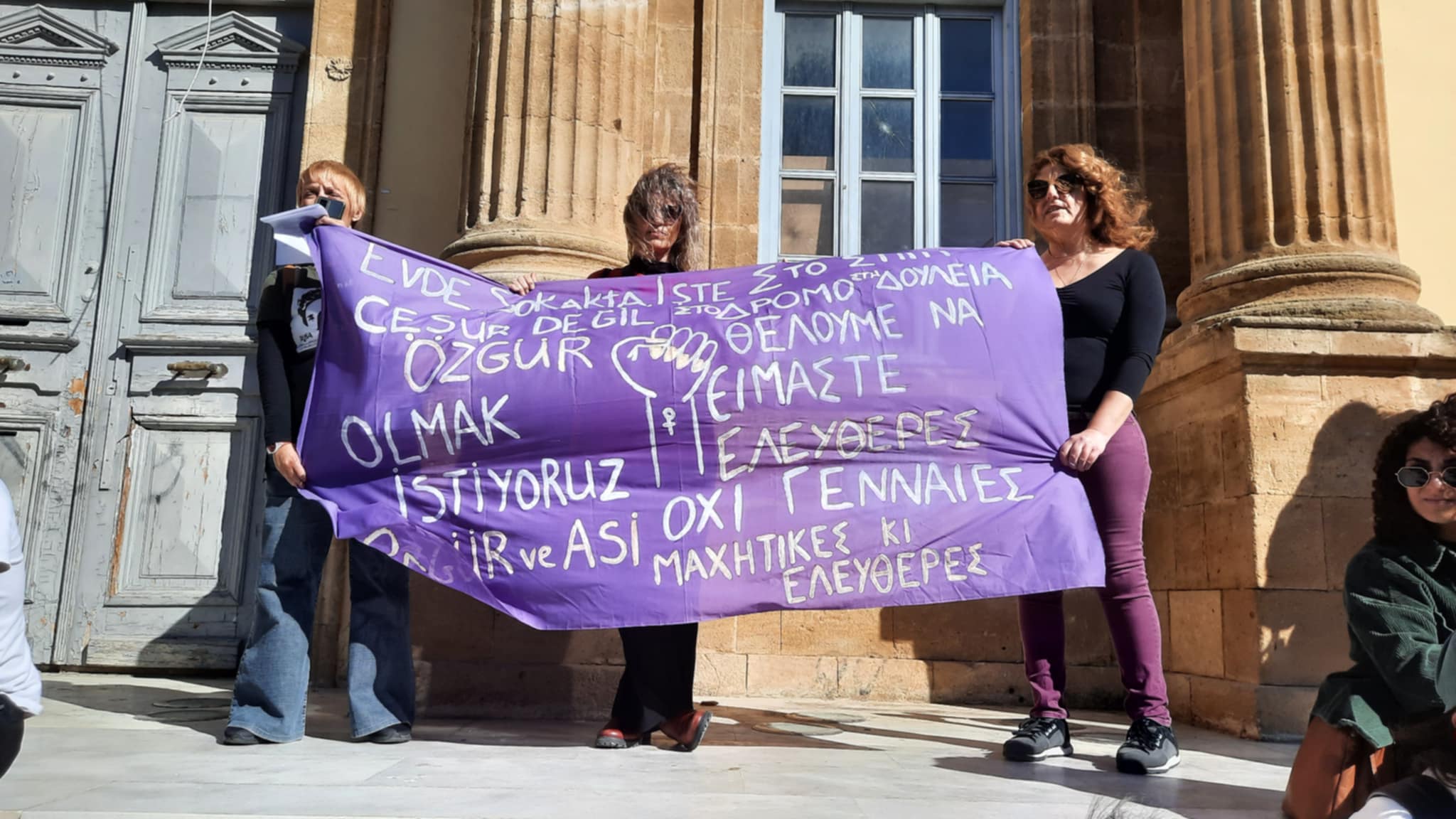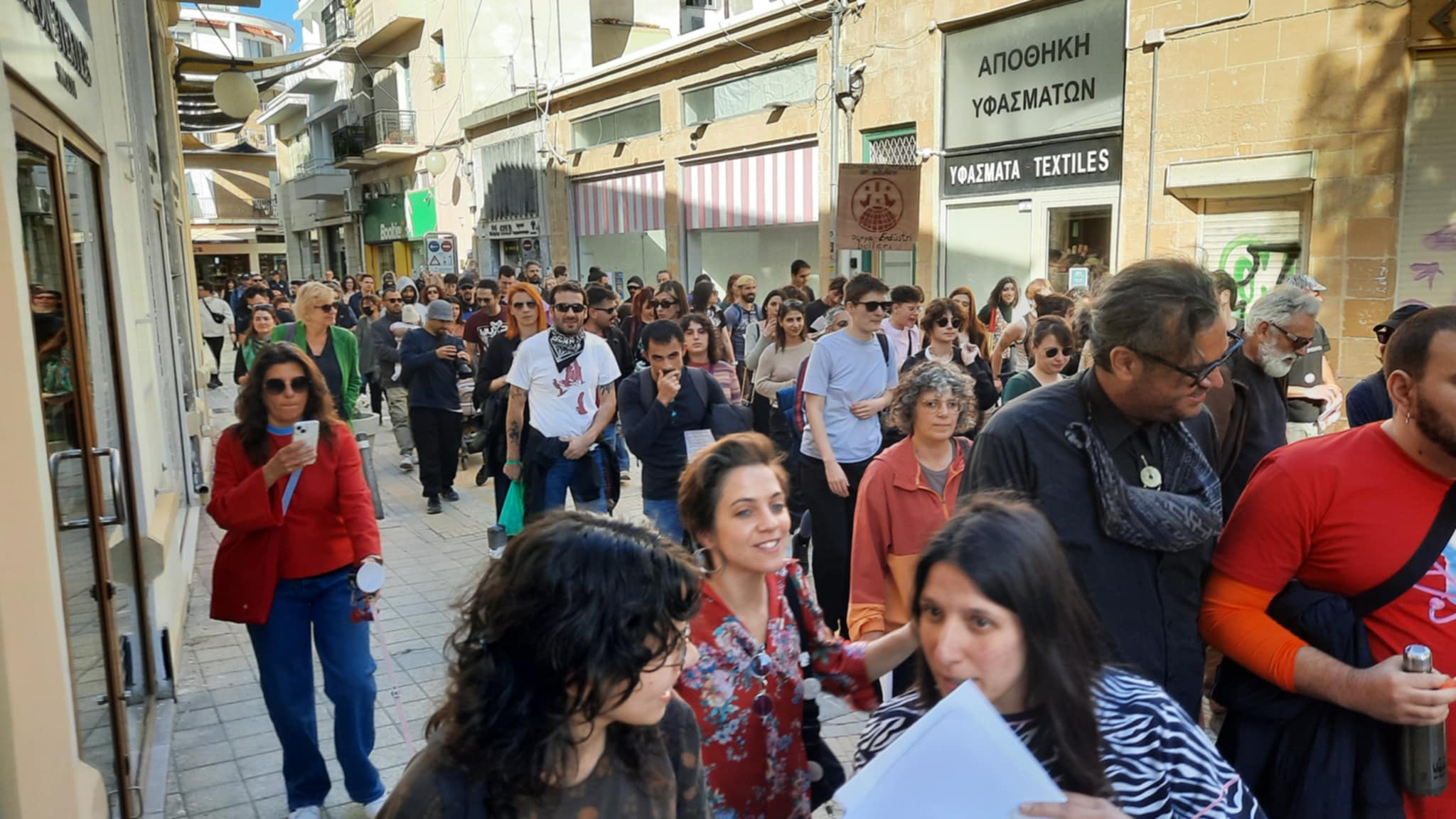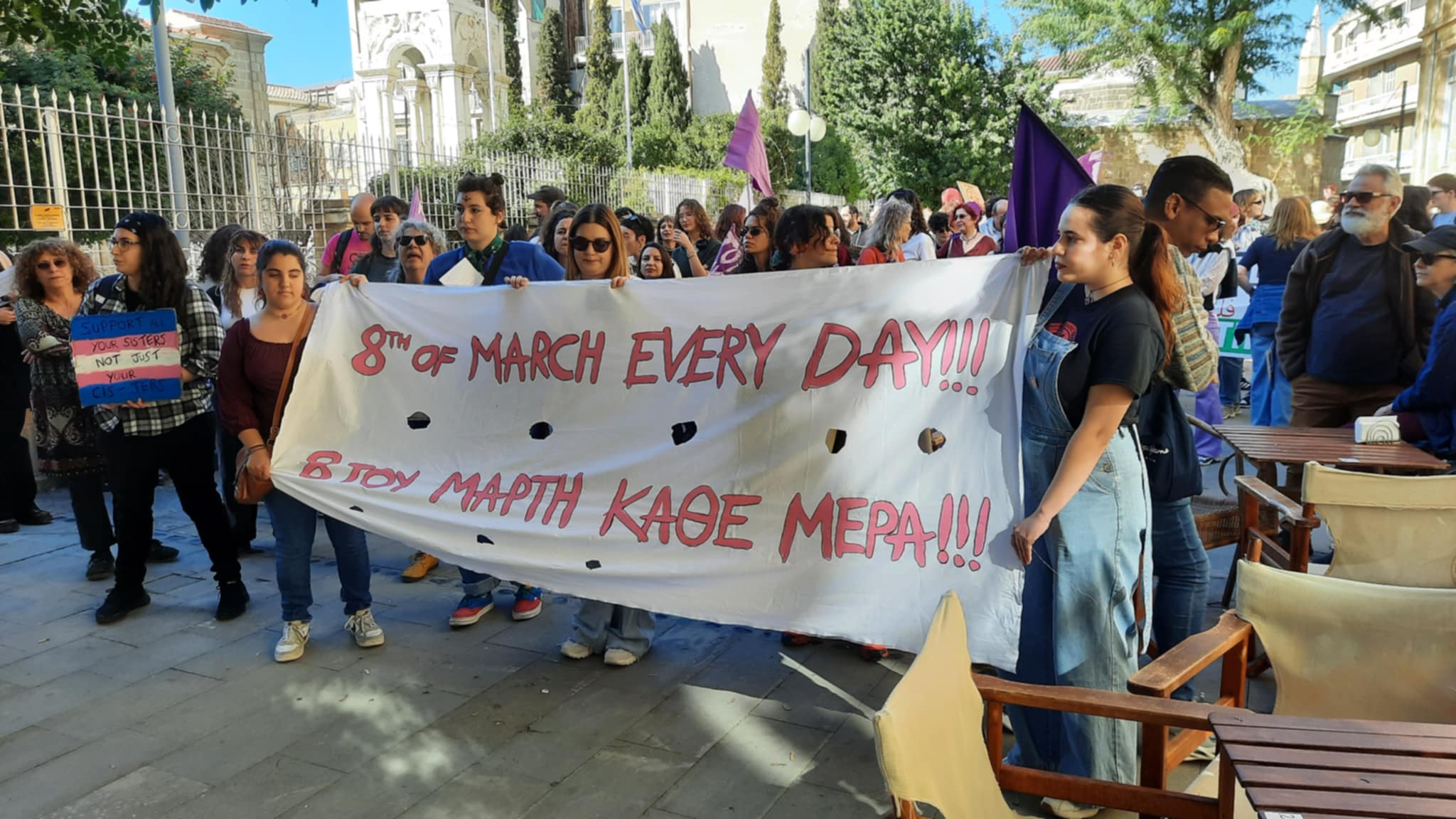Women in Nicosia on Saturday marched through the streets of the capital’s old town to mark International Women’s Day and demand gender equality.
Organised by activist group Afoa, the protest declared that March 8 is not a celebration.
“March 8 is a day of struggle against the patriarchal systemic power that oppresses all beings in various ways. A day of struggle and remembrance of battles fought and won, and others yet to be won,” Afoa said.
It added that the day is “a day of struggle against sexism and sexist discourse, sexual abuse, rape, femicide, and trafficking”, as well as against transphobia and ableism, and an opportunity to highlight “the struggle for access to gender-affirming care”.

Additionally, it highlighted “the economic exploitation and impoverishment of women, femininities, trans, migrant, queer and other marginalised communities”, and called for “healthcare rooted in feminist ethics rather than profit” and the right to inclusive free abortion care.
It also said the day is dedicated to “the struggle for social justice for all who have dared to confront their rapists and abusers”, and for “a different, colourful, inclusive and feminist future”.
On the march through the old streets of Nicosia, hundreds of demonstrators chanted slogans such as, “on the street and even at home, get your hands off our bodies”, and “they never asked any rapist where he was, what he was wearing, and how much he had had to drink”.
Meanwhile, at a parallel event held by women’s organisation Pogo, organisation leader Skevi Koukouma described the day as “an occasion to join our voices with millions of women and men around the world”, while also stressing intersectionality.

“This year’s March 8 finds us once again facing the horror of war experienced by peoples in various corners of the world. In Palestine, women and children are paying the heaviest price of war unleashed by the fascist state of Israel. In Ukraine, the war continues to destroy lives with women becoming refugees,” she said.
She added that the fight for gender equality is “both contemporary and necessary”, and “part of the broader process of societal change.
“The multiple exploitations which women suffer, on the one hand because of their gender and on the other because of their position at work, is a product of patriarchy, which wants women in a secondary role, which wants women to be economically dependent, isolated from political and social events, bound by their role as wives and mothers,” she said.






Click here to change your cookie preferences